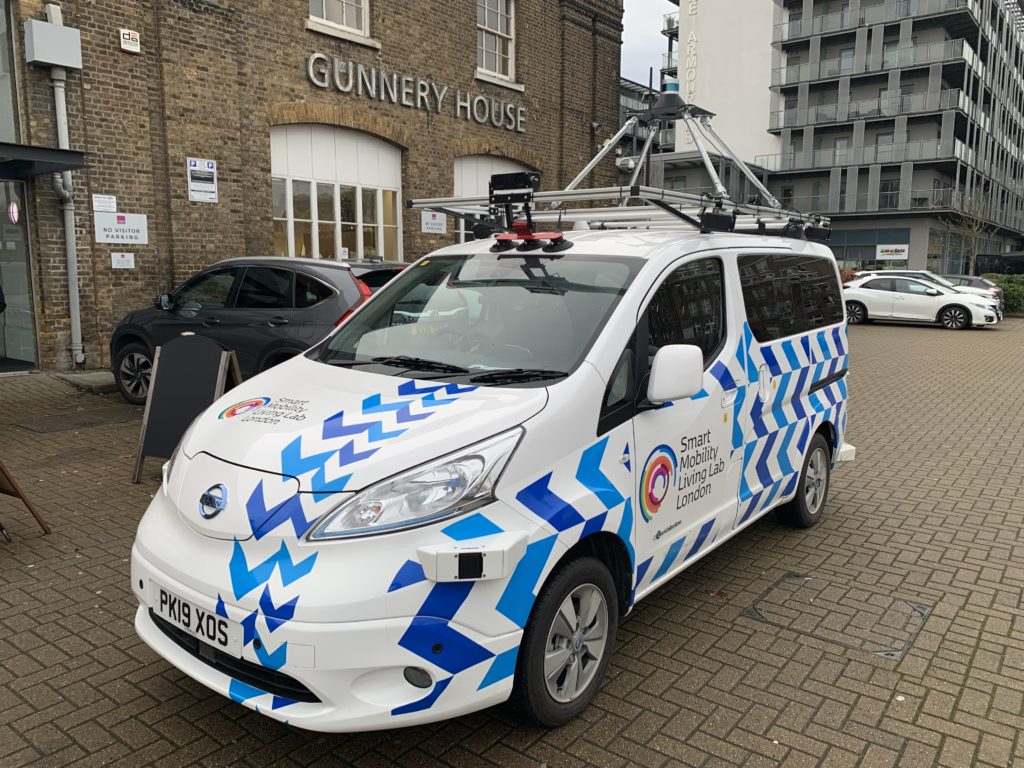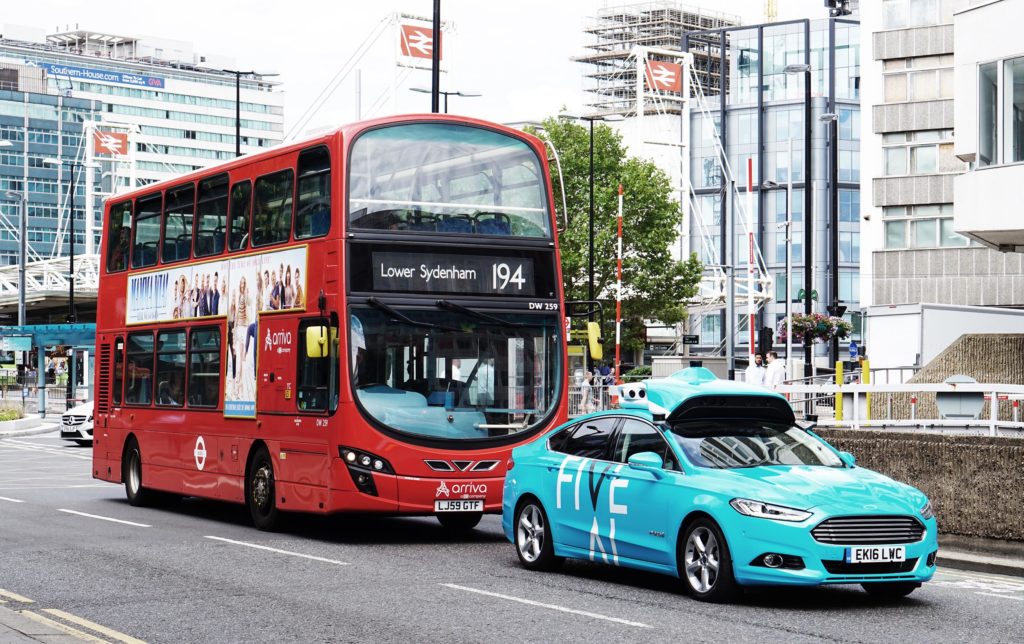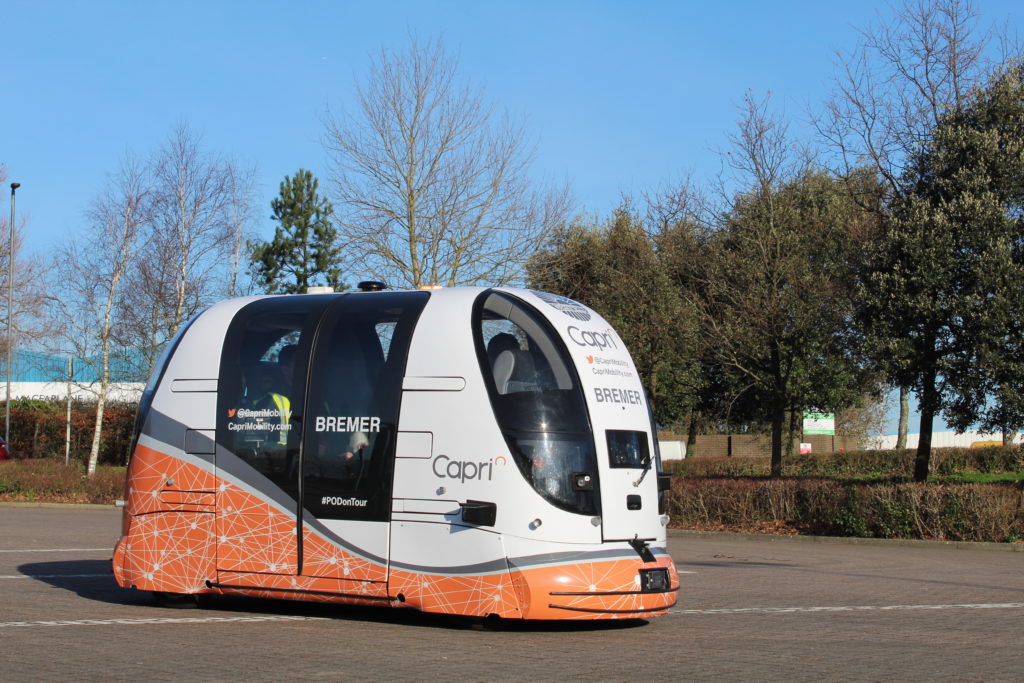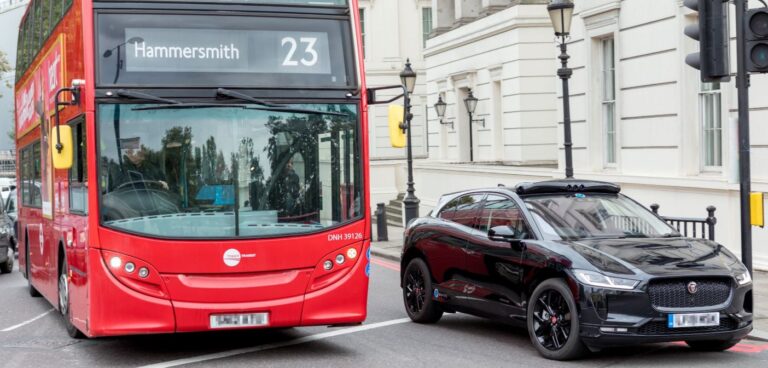With the automotive industry, tech companies and government investing more than £500m into the development of connected and driverless vehicles, the UK has become a testing hotbed. Here, Jennifer Ubah and John Thornton profile some of the pre-eminent research programmes and field tests happening around the country…
Wayve
Wayve is a start-up dedicated to accelerating autonomous mobility through learning-based approaches instead of hand-coded rules. Its aim is to be the first company to deploy self-driving vehicle technology in a hundred cities, not just the first in a single city.
Launched in Cambridge, and recently relocated to London, Wayve is the first European self-driving car company to attract Silicon Valley venture capital funding to lead a Series A investment.
In November 2019 the company announced a US$20m (£15.2m) Series A funding round to launch a pilot fleet of autonomous vehicles in central London, supported by insurance partner Admiral. The investment was led by Eclipse Ventures, with participation from Balderton Capital and existing investors Compound, Fly Ventures and firstminute capital as well as several undisclosed organisations in machine learning and robotics.
Unlike so many self-driving vehicle test programmes, which are carried out on highly structured and modern roads in the USA and China, Wayve believes the UK, with its irregular, diverse and complex streets, provides the best possible conditions to conduct on-road public autonomous driving trials.
In Spring 2019, Wayve publicised what it described as an “unprecedented achievement”, demonstrating a self-driving car navigating on roads it had never previously driven before. This had been accomplished by using only cameras, a 2D map, and a unique end-to-end deep learning driving brain.
“A good human driver can quickly adapt to navigating a new jurisdiction, however existing autonomous solutions lack the requisite ability to detect and respond appropriately to potential hazards,” says Amar Shah, Wayve co-founder and CEO. “By contrast, we are committed to building a general and scalable driving brain applicable to any driving environment.”

Smart Mobility Living Lab
Smart Mobility Living Lab (SMLL) is a UK government-backed initiative aimed at readying London for the arrival of CAVs and future mobility systems via the development of a world-leading, real-world test environment.
The consortium is led by TRL (Transport Research Laboratory) and comprises expertise from across the transport and technology sectors including DG Cities, Cisco, Costain, Cubic, Loughborough University, Transport for London, and London Legacy Development Corporation. Delivery partners include Millbrook Proving Ground and the University of Surrey’s 5G Innovation Centre.
Having been awarded £13.4m of the government’s £51m CAV testbed funding in 2017, this ambitious project became the first to demonstrate and evaluate the use, performance and benefits of driverless vehicle technology on a new advanced urban testbed in the Royal Borough of Greenwich in December 2019.
Selected member of the public were invited to ride as passengers in a converted Nissan e-NV200 on a route in Royal Arsenal, Woolwich that included a range of complex road features, such as residential and commercial areas, parking bays and charging points. A safety driver and two other researchers monitored each ride during the two-week trial and the vehicle was limited to 5mph (8km/h) in accordance to local traffic regulations.
Unlike other CAV research programmes, SMLL is using open architecture to allow multiple stakeholders – include innovators in the automotive sector, transport service and technology providers, SMEs, local and central government, and research bodies – to test their own CAV technologies in a real-world environment over the next 10 years, as part of a Shared Research Programme.
The next stages of the decade-long project include the opening of a brand-new purpose-built £20m research and development facility in Greenwich in March 2020, and the utilisation of some 24km (15 miles) of fixed infrastructure, offering monitored junctions, features and roads for testing.
While high-risk areas such as schools, roads which congest at peak times, and places with heavy pedestrian traffic have been deliberately avoided, monitoring infrastructure has been installed as close as possible to key facilities such as hospitals, as they tend to have less predictable traffic patterns and therefore best reflect the complexity of a real-world urban environment.
Every site is remotely monitored by live CCTV for safety purposes and has a sensor array for sharing and collection data from the vehicle systems being tested. The entire monitored infrastructure also exists as a digital twin environment. This enables simulated modelling and testing ahead of progressing to live testing on public roads, or as an alternative for products in early development.
Some of the monitored features include a bus stop, speed hump, filter lane, roundabout, pedestrian crossing, chicane, signalised junction, cycle lane, property entrance and an EV charge point.
SMLL customers can also create their own route by selecting features of interest to them, offering the opportunity to progressively intensify the challenge of developing CAVs and V2X applications.

StreetWise
StreetWise is a consortium initiative funded £12.7m between September 2017 and February 2020 by UK Research and Innovation through the Industrial Strategy Challenge Fund and part of a programme managed by the Centre for Connected and Autonomous Vehicles.
FiveAI, which develops software and tools to power shared self-driving vehicle services, is leading the project, in partnership Direct Line Group, one of the UK’s largest car insurance providers, and the TRL (Transport Research Laboratory). Other partners include McLaren Applied Technologies, the University of Oxford, Arriva, and Transport for London.
The project aims to develop and demonstrate the technology, safety validation methods, insurance and service models for delivering an autonomous personal mobility solution targeted at replacing the urban commuter car.
It also aims to show that the technology is now sufficiently mature to be safe in urban environments, sufficiently intelligent to co-exist with human drivers, road users and pedestrians and will demonstrate how we can use this technology to build service offers to recover commuting time, reduce commuting costs, cut accident rates, reduce congestion and cut emissions.
In October 2019 StreetWise announced the launch of its commuter research trials with invited participants. Information gathered through the trials will aid the development of safe, self-driving mobility services as an alternative to the urban commuter car.
The two-month trial took place on a fixed 19km (11.8-mile) route in the London boroughs of Croydon and Bromley to evaluate technologies, safety validation methods, insurance and service models needed to deliver a viable, shared self-driving service. Participants were collected and dropped off at the same location and had a specific time slot to take part in the research.
FiveAI’s role in the project was to develop and provide the reference software stack that powers all key aspects of the self-driving system. The stack was developed and trained using a data set from complex UK road and cities, including London.
TRL performed all participant research and analysis, looking at participants’ willingness to use and pay for a shared self-driving service, and measuring their attitudes towards safety and trust. It has also set forth the safety case for the wider Streetwise project and is generating an independent database of scenarios for simulation testing.
Direct Line Group provided research participants for the trials.

Driven
Driven was a 30-month project that ran until the end of December 2019. It was a jointly funded £13.6m programme with matched funding from UK Research and Innovation’s Industrial Strategy Challenge Fund and industry partners.
Led by Oxbotica, project partners included the Oxford Robotics Institute, Axa XL, Nominet, Telefonica, TRL, RACE, Oxfordshire County County Council, Transport for London and Cicero/AMO.
The main goal of the project was to develop and demonstrate autonomous vehicle capabilities in complex, urban environments and address challenges across insurance, cyber-security, data trading and local authority planning, as well as technological aspects.
Over the course of the project, trials took place across Culham, Oxford and London, and culminated in a week-long demo around Queen Elizabeth Olympic Park in Stratford.
Ford Mondeo Hybrids were used throughout the duration of the project. Oxbotica developed two pieces of software over the programme fundamental to the goal of realising universal autonomy: Selenium and Caesium.
Selenium was the ‘brain’ of the vehicle. It took data from the car’s sensors to determine fundamental questions about where the car was and what action it should take. Caesium, a cloud-based fleet management system, coordinated multiple vehicles and allowed them to exchange data between each other without human interaction.
Throughout the project, Nominet and Axa XL collaborated to develop situational risk management capabilities, ORI helped develop data trading algorithms, and Telefonica assisted in ensuring safe and secure communications.
“The completion of the Driven project marks a significant milestone for the future of autonomous vehicles in the UK,” says Driven programme director Dr Graeme Smith. “Establishing Britain as a world leader for innovative technologies has been at the heart of our mission and we’re incredibly proud of the steps we have taken to help make AVs a reality on our roads.”
Following completion of the Driven project, some of the partner organisations, including Oxbotica and Nominet, have taken the work on to other projects such as Project Endeavour, which, with Addison Lee is working to develop autonomous passenger services.

Capri
The Capri consortium was awarded £4.2m in funding as part of a Centre for Connected and Autonomous Vehicles and Innovate UK competition to invest £35m in industry-led R&D projects on CAVs.
Led by global infrastructure firm Aecom, Capri comprises a mix of academia, business and public sector authorities. Partners include Aimsun, Axa UK, Conigital, Dynniq, Heathrow, London Legacy Development Corporation, Loughborough University, Nexor, South Gloucestershire Council, University of Warwick, University of Bristol, T&VS, University of the West of England, Westfield Technology Group and YTL Developments and supporting legal partner, Burges Salmon.
Launched in October 2017, the project aims to develop a business model blueprint to help site owners of large and diverse public estates assess whether driverless shuttles will be viable at their site and how best to invest in the technology.
It’s doing this by demonstrating an integrated and interactive autonomous pod service that, if successful, will ultimately allow members of the public to hail a pod via an app, choose their end destination, pay and have access to relevant information and customer support.
Unlike other UK public CAV trials to date that have had a dedicated engineer inside the vehicle overseeing a safe journey, the Capri trial is the first without this level of supervision, inviting members of the public to turn up and travel alone in the autonomous pod.
Focusing on trips of up to five miles to connect people to places, Capri pods were initially trialled at Bristol Airport in July 2019. A two-week trial simulating an on-demand service then took placed at London’s Queen Elizabeth Olympic Park in September 2019, followed by a week-long trial at The Mall, Cribbs Causeway, South Gloucestershire, in January 2020.
The pods are due to return to the Olympic Park later this year with a final trial that will extend their route and further test the on-demand technology.
ConVEx
Led by Bosch, the ConVEx (Connected Vehicle data Exchange) consortium was established to create a facility for the exchange of data that will help to accelerate the development and deployment of connected and automated vehicles.
The consortium includes Jaguar Land Rover, Transport for West Midlands, Warwick Manufacturing Group (WMG), and three SMEs: Valerann, Synaptiv and Immense Solutions. Interdigital and Transport Systems Catapult support the consortium as subcontractors.
The UK government awarded over £4m to the project through its dedicated Meridian Mobility organisation, which recognises that the collection, aggregation, analysis and, critically, sharing of data is key for future mobility. Overall, £8.6m is being invested in the consortium.
ConVEx is headquartered on WMG’s campus with a partner office at Bosch’s new ‘Connectory’ facility in London. The facility was developed over the course of 2019 and commercial data sharing operations will commence this year.
Mike Waters, director of innovation, policy and strategy, Transport for West Midlands, says: “Data has helped global companies create and refine their products and services across many sectors.
“Here in the UK, we have worked alongside government, academia, automotive OEMs, technology providers and SMEs to define the solution that will allow the traditional transport sector and new mobility entrants to capitalize on the vast amounts of valuable business and operational insight that can be drawn from the data that the ConVEx platform will make available.”
“ConVEx is intended to signal the end of hard to reach data and overly complex relationships between data providers and consumers that ultimately stall our market growth and potential.”
This article originally appeared in the February 2020 issue of CiTTi Magazine





